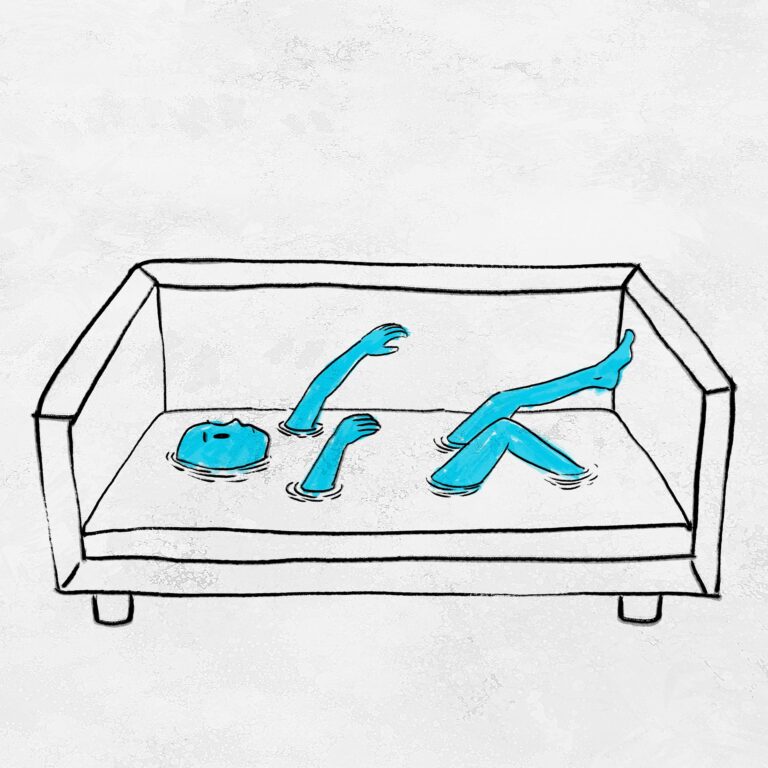Why we neglect what's meaningful to us + an antidote
It’s never been different: There were always people who became excellent in something, worked towards their lofty goals, had great romantic relationships, or had a broad social circle. They simply were happy. And then there are people like most of us. Who somehow never really get started. Like being stuck in the same scene of a bad movie; the things you never wanted repeated itself again and again. Sometimes there’s a little shimmer of hope, that we finally keep working out, write good grades, ask the one girl out, keep reading the book, perform well at work – simply living a fulfilled life. But no. For most of us, it’s like trying to kindle a candlelight in the wind.

Escapism, a term that gained prominence in the 21st century, refers to the tendency to flee from feelings of
- Stress and Anxiety
- Boredom
- Depression
- Trauma
- Monotony
- Social Isolation
- Personal Dissatisfaction
- Peer Pressure
Typically, it is circumvented through quick reliefs such as entertainment, daydreaming, pornography, substance abuse, or any behavior facilitating the disconnect from one’s mental state. All quite natural. Our brains instinctively steer us away from discomfort, exerting their utmost efforts to shield us.

It's a simple choice: Either you learn to swim, or you drown in the flood of your emotions.
My personal journey to swimming proficiency began belatedly. During my primary school course, fear of drowning paralyzed me, hindering any progress. With teachers having limited time, they reluctantly gave up on me. As the course concluded with a competition, I found myself on the sidelines, observing other children compete.
In retrospect, I recognize that an incident a year prior sowed the seeds of this excessive fear of drowning. A friend of my father, mistakenly assuming my swimming ability, threw me into a public swimming pool. After a few helpless moments, my father ultimately rescued me.
This traumatic experience instilled a profound fear of water, deterring me from learning to swim until the age of 10. What I truly needed in that situation was someone to guide me back to the pool, offering a supportive hand and perhaps saying, “You know what? You’ll have swimming class next year in school. How about we give you a little advantage?”

The pattern repeats itsself
The fundamental principle our brains employ is to avoid unpleasant feelings by forcefully redirecting our attention to something more enjoyable. Once this habit takes root, the situation can deteriorate rapidly.
When escapism becomes the norm in our lives, all other meaningful pursuits are at risk of remaining unsatisfied:
- Socializing
- Sports
- Flirting
- Finding a partner
- Learning to cook
- Doing chores
- Learning to draw
- <the thing you are avoiding for a long time already>

it doesn't have to be a trauma
In the end, most of us unknowingly cloak ourselves, bit by bit, day by day, to escape from minor unpleasant feelings. Boredom, stress, or ambiguity often act as the catalysts for escapism. Seemingly inconsequential matters gradually swell into significant issues over time. Responsibilities, goals, and activities that truly matter to us are unceremoniously postponed and eventually canceled. Yours sincerely – Netflix.
Once the brain recognizes that we’re avoiding activities we “should” face, it initiates a cascade of guilt to correct our behavior. However, do you perceive guilt as a positive or negative emotion? Of course, it’s negative. Therefore, the more guilt and ultimately shame we experience, the more we avoid facing our responsibilities and everything else that means something to us. It’s really a vicious loop.

But what are the things that mean something to us?
I personally (and a couple of scientific concepts) differentiate between three divisions:
- Needs
- Sleep, food, shelter, belonging, water, or reproduction
- Wants
- A nice car, a title, a holiday, a fancy house, luxury
- Higher aspirations
- A career or dream job, charity, independence, an own business
What’s the difference between them? It’s easy. Needs are things we’re required to serve our body with. For most of us, it works automatically. However, due to many potential reasons, some of us don’t nurture them (Takes a couple of walks in the forest to find out why).
Here’s a little problem: We live in a world where we easily can get lost in the noise of success. Success that has mostly been pre-defined for us. In my early 20s, I started to fully focus on my career and financial independence. This went well for a while, and it was a fun time. However, deep inside of me, I always felt empty. Why was that? Of course, I did not take care of my needs. I ate fantastic food, was never thirsty, had a partner, but – I neglected my social circle. No matter how high the highs were, I missed my people with whom I could share these things.
The Wants: Somehow society made it flip the importance of wants and needs. Many out there believe wants are the real needs and not the other way around. Which is why we ultimately witness mass emptiness. People who live for holidays, Fridays, glamour, presents, and fast cars.
Higher Aspirations: What is it that you dreamed about when you were a child? Was it about helping injured animals? Professional football player? Or maybe you wanted to build your very own farm or even a city someday? Do you see the difference? There’s no child who says, “I want to become rich one day. I want people to adore me, heck, I want to own the world if I could.” Children’s desires are the real higher values we once stood for: being helpful, revolutionizing the world, taking care that others have food on their plate tomorrow, or that they don’t die. These are the higher aspirations we once advocated for.
Other higher aspirations include:
- A sense of humor
- Understanding yourself
- Creativity
- Executing moral values
- Practicing openness
- Realizing your dreams and goals
- Heightened awareness
- Awareness of choices
- Working on your past
- Conscious gratitude

When we start to neglect our needs...
- Our body detects this easily, no matter what
- He will try to correct our behavior with guilt and shame
- Guilt and shame don’t work properly anymore due to our new habit of avoiding inconvenient feelings
- Therefore, we reinforce behaviors that make us forget inconvenient feelings as long as possible
- More guilt and shame will be triggered
- An eternal loop is created
How to quit neglecting our needs and finally get back on track where:
- We can’t wait for Monday on Sunday evening
- We don’t live for holidays and weekends
- We cease the recurring inner conflicts that take so much of our energy
- We don’t pile up problems until they corner and beat us up every day
- We finally work towards the things that are meaningful to us
- The unbearable emptiness we feel disappears
The list is literally endless, and the reasons behind all of it as well. But, there’s a little guide we can make use of.

A little guide to freedom
To me, freedom was most of the time something different than what my family understood. While my environment hunted for shiny objects, I couldn’t care less about ranking, who’s first, or who had a better job. All I ever wanted was to get rid of the demons that others and myself have summoned. The fundamental message that all of these demons conveyed was: you’re not enough. You’re not enough to be loved, to be accepted, to be understood.
And now the big surprise. Most of us feel exactly the same. The majority of people you encounter every day believes deep in their heart that they’re not enough. If there’s one reason that fuels all of the inconvenient feelings mentioned at the beginning of the post, then it’s a fundamental belief of unworthiness.
If you manage to:
- … realize it became a standard to neglect needs
- …. realize that avoidance is a habit we have established over time
- … unlearn this habit by withstanding the pain of feelings we try to avoid (beginning of post)
- … find out the reasons why you feel not enough
- … systematically reprogram your beliefs
… then there’s a good chance that you, I, and everybody else live a fulfilled life sooner or later.

Little Guide to Freedom: 3 Ways to Freedom
Manifesting Worthiness: Countering all the curses we chant every day like “I am so lazy, not attractive, not smart enough…” we need something that works against it and slowly but steadily reprograms these beliefs.
“I am a unique and valuable individual, deserving of love, respect, and success. My worth is intrinsic and unaffected by external opinions or circumstances. I embrace my strengths and acknowledge my imperfections, for they contribute to my authenticity. I trust in my abilities, learning and growing from every experience. Each day, I affirm my self-worth, recognizing the beauty within me. I am worthy of happiness, fulfillment, and the abundance life has to offer. Today, I choose to celebrate myself, honoring the incredible person I am and the limitless potential that resides within me.”
It doesn’t have to be extensive, but consistency is key with manifesting self-worth. You can use chatgpt in the beginning and slowly start to write your own affirmation after a while. “Write a 90-word affirmation about self-worth” could be a possible prompt for chatgpt. Buy a journal for this and start today. Write by hand. Already after a few days you will see a difference.
Working on Your Past: “Sometimes you don’t feel the weight of something you’ve been carrying until you feel the weight of its release.”
We learn in school how to calculate, play an instrument, countries of the world, the periodic system, and much more. But who teaches us to evaluate all the issues we picked up over the course of our lives? Nobody. And so we collect all of these memories and carry them on our shoulders until eternity. I can still recall when a colleague in his 50s started to tell me a story about a bad experience he had with somebody 30 years ago during military service. He was not able to forgive and let go. But this corrupts our mind, and slowly but surely we’re growing a stinky pile of bad experiences that torture us until we die.
The skill of accepting and letting go is one of the tools I couldn’t live without anymore. Like any other skill, this one takes time to learn as well. Regular practice of letting go and accepting is essential. Whether it be that one guy in the morning that took your priority on the streets, the conflict at work, or the government that again, misused its citizens funds. We have to learn to keep clean our mind and heart.
Exposure Therapy: Jordan B. Peterson strongly advocates for exposure therapy when it comes to our fears:
“Exposure therapy is not so much that people get less afraid. It’s that they get braver. If you expose a person voluntarily to one thing they’re afraid of, they become less afraid of classes of things.”
What is it that you’re afraid of for years already? Every professional singer, sportsman, or woman, every high-ranked politician has a therapist that optimizes their thinking. Why not become a professional as well?

Hello, Neat post. There is a problem with your web site in web explorer, would test this?K IE still is the marketplace leader and a huge part of folks will leave out your magnificent writing because of this problem.
Content for your website https://zetds.seychellesyoga.com/info
Web Development Wizards https://zetds.seychellesyoga.com/info
Can provide a link mass to your website https://zetds.seychellesyoga.com/info
Your site’s position in the search results https://zetds.seychellesyoga.com/info
Free analysis of your website https://zetds.seychellesyoga.com/info
Content for your website https://zetds.seychellesyoga.com/info
Web Development Wizards https://zetds.seychellesyoga.com/info
Can provide a link mass to your website https://zetds.seychellesyoga.com/info
Your site’s position in the search results https://zetds.seychellesyoga.com/info
Free analysis of your website https://zetds.seychellesyoga.com/info